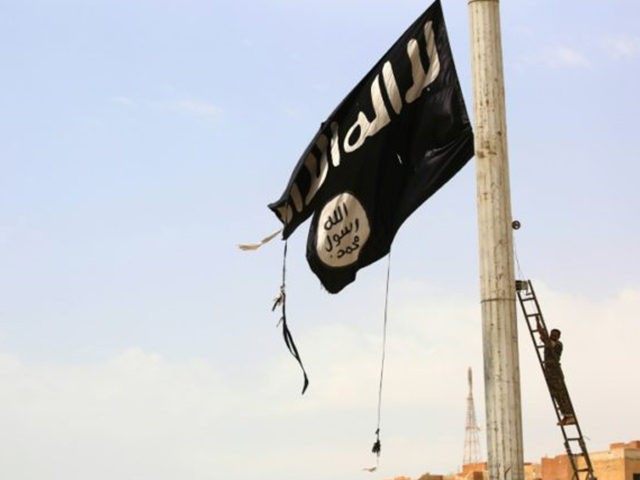The State Department held a special press briefing Thursday with Brett McGurk, special presidential envoy for the Global Coalition to Defeat ISIS, and spokeswoman Heather Nauert. The focus was the 2017 successes against the Islamic State (ISIS).
The special envoy position was created in 2014 to oversee the international coordination of the struggle against ISIS, which, at the time, controlled vast swaths of territory in its Iraq and Syria-based “caliphate.” McGurk has served in this role since 2015 when former President Barack Obama appointed him. His tenure has witnessed, especially since the beginning of the year, the virtual eradication of that terrorist pseudo-state.
McGurk told reporters that he recalled just how dire the situation remained only a year ago. “I think it’s worth recalling ISIS used to be controlling basically a state, 100,000 square kilometers, the size of the UK,” he told reporters, adding later:
[W]hen President Trump came in and Secretary Tillerson came in, we faced real critical challenges in terms of major [ISIS] plotting attacks against us and against our partner homelands coming from Syria and Iraq. And they were aspiring to kind of major, 9/11-type attacks. … And so long as they had these safe havens and sanctuaries, particularly cities, a city like Raqqa, and at the time they still controlled half of Mosul, it was really hard to root them out.
“[T]hree key decisions were made right off the bat as soon as President Trump came into office,” McGurk said, highlighting the administration policies that helped facilitate the rolling back of the brutal ISIS bid for a theocratic empire. “Number one, he issued a directive within, I think, his third day for all of us to really look to accelerate the overall defeat of ISIS.”
“He delegated authorities immediately to Secretary Mattis and our commanders in the field. When Secretary Tillerson came in, he made clear to all of us that if everything’s a priority, nothing’s a priority, and our priority is the defeat of ISIS,” McGurk continued, describing the rapid assembly of 74 countries willing to combat ISIS.
The final two decisions were efforts towards finding a political settlement between Syria’s other warring factions and “holding Assad accountable for his chemical weapons use and proliferation.”
McGurk emphasized that these policies included coming to an accommodation with the other major power operating in the region: Russia. He described the current situation as follows:
We’ve kind of drawn some lines on the map with the Russians about where their forces would be, where we would be. This is a professional military-to-military engagement focused on deconfliction. We’re not coordinating operations but making sure we don’t have any accidents. That’s extremely tense from time to time, but overall that has gone quite well and accelerated the pace of operations. So the engagement with the Russians has actually, I think, contributed to the demise of ISIS at least in the caliphate.
In response to a reporter’s question, McGurk downplayed an incident this month in which the Pentagon accused Russia military of overstepping deconfliction lines. “There have been direct, very high-level senior engagements between our military colleagues and theirs, and we have not had a significant incident like that since, so the deconfliction line overall has held,” he said.

COMMENTS
Please let us know if you're having issues with commenting.